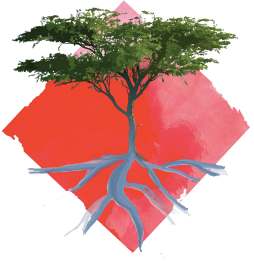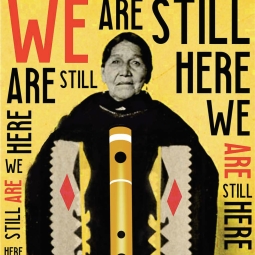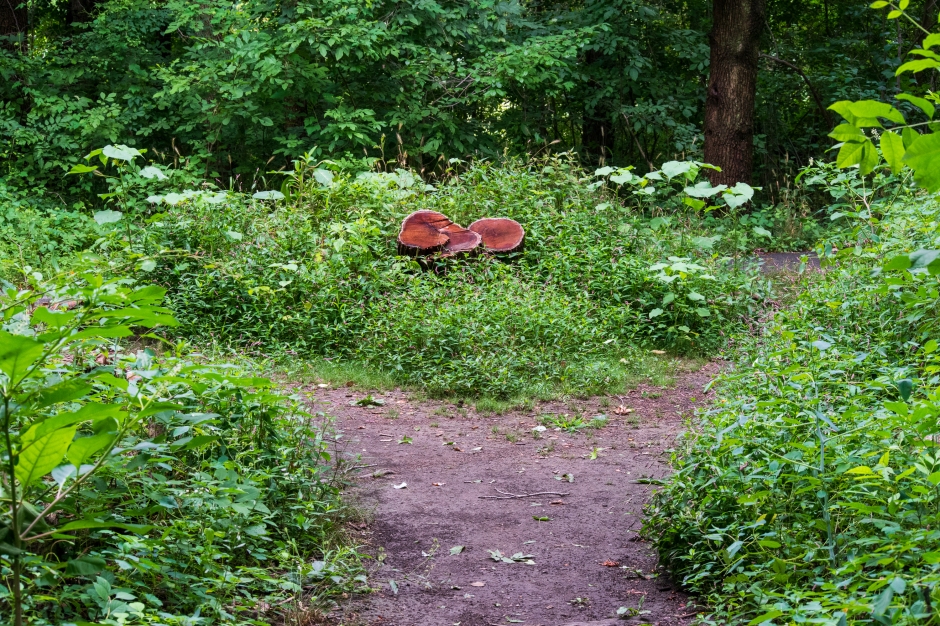I loved my friend.
He went away from me.
There’s nothing more to say.
The poem ends,
Soft as it began-
I loved my friend.
– Langston Hughes
~ ~ ~
Why am I awake at 3am in the morning?
I could answer that question by saying that though it’s 3 am in Philadelphia, it’s 3 pm in Singapore and Malaysia and despite general advice for traveling such distances telling me that I shouldn’t be up and writing this right now, the desires of my body for wakefulness are apparently stronger than my wish to acclimate to my current circadian surroundings.
But if I’m being honest, I must also admit that I am not just awake, but awake and looking at a picture on facebook that I definitively know I should stay away from.
So I perhaps it might be more accurate to say that I am awake because without daylight as guidance, all my usual techniques to ride out loss are temporarily adrift at sea.
~ ~ ~
During Swim Pony’s recent game/theater project The End I spent a lot of time coming to understand what it means to grieve.
One way that I explored this concept was through research. I listened to Pauline Boss talk about the myth of closure and the particular pain of what she calls “ambiguous loss.” I interviewed experts on the subject of mortality that told me how catastrophic life events like divorce or immigration can trigger a process we normally associate only with death.
I also came across an interview with neuroscientist David Eagleman in which he explained that our memories of other people are like little algorithms in the hardware of the brain, a catalogue of experience and observation that create tiny simulations of the people we know. When we lose someone, part of the jarring dissonance we experience is that they are not truly “dead” to us. The fact of our capacity to mentally simulate keeps them with us in the present, bringing the old adage that “those we love live on in our memory” into a rather more literal truth.
Hearing this, it struck me what an awful lot of effort it is to keep the system running when the assumed equation for another human suddenly shifts. This effort was starkly illustrated to me because I was at the time in the process of losing someone dear to me and feeling most intensely the strain that dealing with their undesired vacancy required. And because of my former friend’s decision to concertedly absent himself from our previous exchange, I found myself taking up this second avenue of exploration and learning the grieving process in a rather more intimate way than I had intended.
What I noticed first in the personal experience of loss is how impossibly frustrating it is to watch a person you long for go out like the tide. To feel so much and be able to do so little about it is a most definitive computational drain. The absence of my friend did not suspend my previous simulation of him but paradoxically sent it into overdrive as it strove to create a reconciliation of the current state with my previous points of research. I could not find contentment in simply cutting the graph of experience in two: living, moving data on one side and flat lines of zeros on the other. No, the dissonance between the before and after instead required exponential levels of complexity as I tried to find some earthly way to fold the numbers in on themselves and expose an underlying principle that made sense.
Quickly that effort felt foolish, like watching the spinning pinwheel icon pop up on a computer program. Some part of me wanted to believe that perhaps with patience the system might finally right itself. But the longer I waited, the deeper into the void I dove in search of answers, growing an ocean’s expanse of unmet seeking inside. When finally the bounds of my body proved too small to hold it all, my sadness began to spill over the edges, often without warning and in the most inconvenient of places.
And still the little algorithm calculated on.
~ ~ ~
During the run of The End, a player spoke this way about her experience with the feeling of grief:
They want you to be done. They want it to be over with and finished. They want you to have had your sadness and come cleanly out to the other side. But it doesn’t work that way, even if you successfully pretend that it does.
I remember the discussion in the room as we read this. We decided that the character of “The End” should ask her if she found reward in the effort of spending a bit of time each day coming to terms with her experiences. Most players when prompted with this question came back with resounding yeses. But this one, still so clearly running answers to her equations of loss, was much more uncertain. The game was some part a relief, she told us, and gave space to name a thing that others so often required she keep hidden. But it also allowed the feelings she had previously felt in check to run amok and take residence in her in a way they had not been allowed to before.
For myself, during that period of rawest loss, I was lucky to have the game, lucky it required of me 12 plus hours a days to keep me doing something, and lucky to feel a sense of real creative purpose and impact when I needed it. I was lucky, too, to have a husband who often snuck behind me for a hug, told me I was working too hard and bade me to come and watch stupid television once in a while.
Looking back I see how I used my constant occupation as a way to try and delete the file in order to move on. I told myself daily that one cannot require another’s affection any more than it’s possible to quiet a stormy sea by wishing it still. I gave myself the gift of one last good cry before scrubbing all the archival records from my phone and computer. I fixed my eye on an impending honeymoon to Singapore and Malaysia and told myself that I was lucky, lucky, lucky to have this exciting experience to look forward to.
~ ~ ~
On facebook one can see the massive catalogue of photos I’ve posted from my travels to Southeast Asia. I love to look at them, partly because I am so horrible at remembering my own experiences, but perhaps more so because it makes those experience seem more real. I know it was grand and beautiful to visit places a world away from my own day to day but my memories are so swiss-cheesey that I like the reminder that it all actually happened. I look at myself sitting on those splendid beaches and hiking under dense jungle canopy. I look at Singapore’s futuristic cityscapes filled with an eclectic mix of people, cultures and food. I remark how the days seem packed, knowing that my husband and I had a hard time sitting still.
While staying on an island called Sibu in Malaysia, we often spotted a young Singaporian boy on vacation with his family. This bespectacled youth was at that age just before puberty when boys are still soft and sweet in a way that almost seems precarious. We deemed him Pudge and fell in love with his propensity to wear the same daily uniform of too tight white shorts and soccer jersey. We adored him for mixing way too much ovaltine into milk at breakfast. Most of all I swooned at the way his floppy arms flailed as he followed his sister’s choreography to the bad pop music that played at the bar. Brad and I talked about Pudge like a celebrity, wordlessly observing him across the beach and then quietly cheering on his choice to gleefully perch himself at the front of a kayak or spend an inordinate amount of time digging holes in the sand.
At the airport on the way home I asked Brad if a day would ever come when we would think of our vacation and no longer remember that Pudge was there. He said, sure, barring active remembrance it was possible, maybe even probable. I said we needed to start a hashtag, something like #Pudge4Eva or #AlwaysRememberthePudge.
The photos of my vacation contain no images of Pudge. They also do not capture the small fight about boarding passes my husband and I had just before leaving. Nor do they note the occasion an hour after said fight, when my thorny anger dissolved and we quietly sat at the gate, explaining carefully why it was that we were both triggered by the others’ reaction. The photos don’t capture my awareness in that moment of how Brad and I have grown together over the past ten years, how solving this fight felt emblematic of the way we have learned to make room for each other as we make our way together across the world.
Perhaps it’s unfair to look at a picture and expect it to do the work of containing such things. Perhaps it’s unfair to expect these remnants to be an accurate recounting of who we have been.
~ ~ ~
If there is one major takeaway from the experience of sitting up late at night half a world away from home it’s this: it is highly inconvenient to be sad.
Just before leaving for vacation I began a new brand of birth control. When I started having strange spells that were some combination of feeling dizzy and that maybe the world around me wasn’t actually real, I assumed it was just the lingering effects of travel and time zone change. I also didn’t feel like eating and lost my interest in alcohol but perhaps most treacherous was the way that, seemingly at random, a tide of tears would rise up and attack me like an invading army. Brad kept asking what was up and I kept saying I felt “weird” in a way that I couldn’t totally explain. I would watch the emotional responses of my body at this curious distance, wondering why on earth I was crying in such a beautiful place. The sadness felt effort-full and expansive in a way that was frustratingly familiar, as if I’d spent months actively walking away from an ocean only to end up half a world away staring at the shore of its other side.
Along with the physical symptoms, I established a pattern of waking around 3 am. At the same time every evening my eyes would open and I’d know with total certainty that there was zero point in trying to go back to sleep. And in this way I found myself with consistent time in the dark with nothing else to do but catalogue the bits of data that rose to the surface of my consciousness. My late night wakefulness stayed with me through Singapore’s ultramodern computer-rendered buildings and on towards Malaysia’s tropic coasts. In addition to the hormonal imbalance I added to the mix a head cold, a very solid sunburn and what one website breezily called “traveler’s diarrhea.” As a childhood migraine sufferer I’ve a pain tolerance not insubstantial, but this physical onslaught was of an entirely different order. I couldn’t just wait it out until the sensation subsided. No, I constantly had to deal with my body, with the fatigue of sickness and the strange swells of melancholy. It felt like surfing on an endless series of waves that stubbornly refused to break onto land.
During the daylight my determination was strong enough to overcome it. I hiked and snorkeled with earnest ease and general aplomb. I boated to nearby islands and skittered craggy shores to explore tide pools surrounding the water’s edge. My gleeful facebook photos are not social media half-truths. They are genuine records of joyful experience that I worked incredibly hard to ensure I was giving myself. But each night I once again found myself awake at 3am, feeling the deep and tectonic ache in my hip joints brought on by the intestinal battle and that erstwhile loss that’d again drifted up to the surface from where it had lain below. It would float there with me in bed, maliciously gnawing at the edges of my happiness, knowing I no longer had anemone or puffer fish to keep me company in its wake.
When I look at the pictures of myself during this point in my vacation – walking past kampongs and pointing at speckled crabs – I know those experiences were genuinely contented ones. But they also do not mark the increasing rise of the emotional tide. They don’t acknowledge the accumulated weight carried in late night calculations over one who is deeply missed.
~ ~ ~
Near the end of the first round of development on The End, I asked my collaborators for their favorite writings on grief. One of them passed along a piece by Langston Hughes called “I loved my friend.”
It’s one of those poems that so perfectly names something you’ve experienced that it’s hard to believe you have not always known its words. I made it one of the very last things that players of the game would see.
~ ~ ~
Midway through our time in Malaysia the ocean’s asynchronous tide went all the way out, leaving a mucky landscape of dying fish and sea cucumbers that Brad and I explored in the early morning hours. Later that afternoon we snorkeled and saw a hermit crab the size of a grapefruit.
The next day we tried scuba diving and I had trouble adjusting the weight belt. Hanging out a few meters below the surface, I was capable at demonstrating how to clear the mask of seawater by blowing air out of my nose. I was also fine at taking the regulator from my mouth and showing the teacher how to reach back and recover my air source if it was knocked away. But when she signaled something we hadn’t planned ahead of time, an instruction to demonstrate something I didn’t understand how to do, I started to feel the panic rise from within.
The water had begun to dim as a storm gathered in the clouds above. The instructor gestured and I shrugged as the uneven weights pulled my body asymmetrically towards the bottom. I tried to right myself as she pointed to the belt and gave me the hand sign for “Ok?” The plastic-y air in my mouth suddenly seemed far too little to sustain me and the whole strange apparatus I was covered in felt impossibly flimsy and un-real. I gave her the “Not so much” gesture in return.
I vaguely recalled I was supposed to was breathe, vaguely remembered the one rule to retain from my 40 minute scuba crash course was not to give over to the body’s natural instinct to hold in and tighten one’s lungs around your breath. I understood that this rising panic was natural and common and that if I could just keep the air moving in and out of my body, I’d likely be fine. But the thought of sinking deeper, being even farther from that fading light, alone with myself, abandoned without words or explanation and denied a chance to understand or make meaningful sense of all this sudden loneliness and longing… It felt like a benthic pull I could not give over to without wholly losing myself to the darkness that lay in wait.
When I burst into tears over chicken satay at our tiki-torched table that night on Sibu, I had to admit I could no longer chalk all this up to stomach viruses and humidity. Much as I disliked admitting my resolve was weaker than the side effects of the pills I was taking, it seemed clear this was no way to be experiencing Paradise.
~ ~ ~
Five days later, finally feeling free of the effects of hormones and back to normal in my insides, Brad and I sat quietly watching manta rays float by scuba divers as they cleaned glass viewing panel on the largest aquarium tank in the world. At some point we realized these divers were nearly twice as far down as we’d been intended to go on our own excursion, before I’d made us exit mid-dive and head back up to the surface.
“That’s it?” I said, looking at the distance a little astonished. “That isn’t very deep at all.”
“She told us we would stay pretty shallow,” Brad answered. “How far did you think we’d go down?”
“I guess I didn’t really have a sense of what that depth would look like. It doesn’t seem so bad from here, but at the time it felt like we’d just keep going down and down until I could no longer see the surface.”
~ ~ ~
At the party for The End, I kept waiting for the finality of the project’s completion to hit me. Objectively, I could see its success. I took note of it in the laughter and tears that bubbled up between those who played the game. I could intellectually mark the way all my hard work and efforts had genuinely paid dividends in my audience’s lives. Still, something in me couldn’t quite let go enough to float in enjoyment the way I wanted to.
This is what I am thinking about in the wee hours of the night, as I sit looking at a picture of my friend on facebook that makes me so terribly sad: how do I find a way to let go?
And with this thought a late night musing ends, as soft as it began…
In understanding that sometimes we cannot force ourselves loose of the weight of loss…
With a dawning awareness that when your grief and your body are not done with you, you have to let them have their stubborn place…
And the knowledge that I loved my friend, he went away from me, and there’s nothing more to say.
– A
 The Way Sand Wants for Water by afaq
The Way Sand Wants for Water by afaq  Where the Light Won’t Go by ari
Where the Light Won’t Go by ari  River Devil II: The Return by Carmen Maria Machado
River Devil II: The Return by Carmen Maria Machado  Deeply Routed by Denise Valentine
Deeply Routed by Denise Valentine A Sycamore’s Psalm by donia salem harhoor
A Sycamore’s Psalm by donia salem harhoor Appear to Me by Eppchez !
Appear to Me by Eppchez ! The Inside Outside by Erin McMillon
The Inside Outside by Erin McMillon Conversations by Jacob Camacho
Conversations by Jacob Camacho The Land Remembers by Jacob Winterstein
The Land Remembers by Jacob Winterstein Chronicles Of Asylum by Li Sumpter
Chronicles Of Asylum by Li Sumpter



















 And then, at the very end of the circle through the museum, we came upon an exhibit cataloguing the work of an artist named Paul Stankard. His form: nature-inspired themes encased to form paperweights. Collected in this area were hundreds of small round objects taking nearly identical form in perfect rows. His early stuff felt about the same to me as much of what we’d already encountered – pretty but a bit too delicate and girly for my tastes. These first works were thing I would never buy for my home because a) where would I put them, b) fancy glass makes me nervous, and c) the only thing they do is gather dust on some shelf where they never get looked at.
And then, at the very end of the circle through the museum, we came upon an exhibit cataloguing the work of an artist named Paul Stankard. His form: nature-inspired themes encased to form paperweights. Collected in this area were hundreds of small round objects taking nearly identical form in perfect rows. His early stuff felt about the same to me as much of what we’d already encountered – pretty but a bit too delicate and girly for my tastes. These first works were thing I would never buy for my home because a) where would I put them, b) fancy glass makes me nervous, and c) the only thing they do is gather dust on some shelf where they never get looked at.
